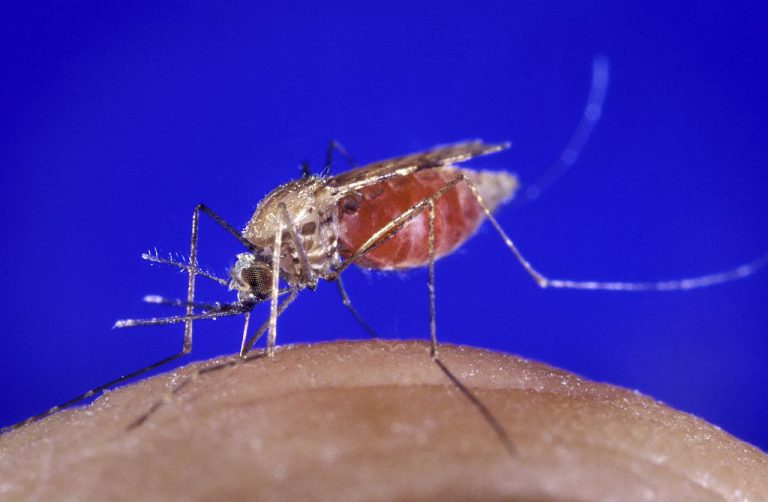UK-based biological pest control company Oxitec claims to have discovered a way to apply genetic engineering (GE) on insects to curb mosquito-borne diseases. While the plan has met with approval by the EPA, various concerns have arisen about the necessity and safety of GE mosquitoes.
Mosquito control through interrupted reproduction
Oxitec’s experiment involves genetically modifying male mosquitoes by inserting a gene intended to reduce select mosquito populations, thereby preventing specific mosquito-borne diseases.
According to epidemiologist Thomas Scott, the goal of the GE mosquito project is “not to kill mosquitoes” (although that would be the ultimate result), “It’s to prevent people from getting infected and sick and dying.”
Scientists expect released male GE mosquitoes to mate with females. The implanted gene is meant to destroy larvae that would grow into biting female mosquitos, allowing only the non-biting males to survive. Over time, the male mosquitoes would run out of mates and the species would eventually die out.
The scientific endeavor is exclusively focused on Aedes aegypti, an invasive species of mosquito linked to the spread of viral diseases such as yellow fever, chikungunya and dengue. It is also considered a vector for Zika, a pathogen subject to prenatal transmission which may result in birth defects; and West Nile virus (WNV), the most common mosquito-borne disease in the U.S. today. The CDC recorded 2,695 WNV cases in 2021, resulting in 191 deaths.
Success
You are now signed up for our newsletter
Success
Check your email to complete sign up
According to the California Department of Public Health, the Aedes aegypti population has been steadily rising in numbers in 21 counties over the past few years.
READ MORE:
- Japanese Joro Spider May Be a Welcome Invader
- 6 Easy-to-Grow Mosquito Repellent Plants
- 5 Natural Formulas to Save You From Mosquito Bites
Approved and moving forward
With clearance from the U.S. Environmental Protection Agency (EPA), Oxitec’s project was approved and the company plans to release approximately 2.4 billion GE mosquitoes in California and Florida through 2024.
In addition to the current release plan, Oxitec hopes to extend its operations in Florida and initiate a new pilot project in Central Valley, California, although further expansion will require permission from “state regulators and local abatement districts.”
EPA says “it is unlikely that the local mosquito population would pose any increased risk to humans or the environment.”
Public resistance
While Kofler and Kuzma asserted in the Boston Globe that “the potential benefits of GM mosquitoes may outweigh their unknown ecological risks,” the project has met with criticism from the public.
Approximately 13,000 comments have been made to the EPA in resistance to the project, expressing concerns over its potential negative impacts, political motives, and questionable necessity.
According to Natalie Kofler, adviser for the Scientific Citizenship Initiative at Harvard Medical School, and Jennifer Kuzma, co-director of the Genetic Engineering and Society Center, the people of Florida “aren’t too worried about dengue and chikungunya fevers because they’re not much of a threat.”
The Florida Health Department considers dengue symptoms as “mild to none.” A mere 95 cases of dengue—25 imported and 70 locally transmitted—were recorded in the state in 2020, Dr. Eva Buckner at the University of Florida adds.
Additional criticism is directed towards a $1,614,272 grant provided by Bill and Melinda Gates Foundation in September 2020, funding mosquito trials in both Africa and America; with concerns centered around why, if 90 percent of mosquito-borne disease occurs in Africa, would trials be necessary in North America.
According to Friends of the Earth, the EPA did not release data regarding former field trials in Florida or Brazil about their impact on public health, “including allergenicity and toxicity,” and even redacted the information from their permit application. The environmental advocate group also complained that the EPA had not had an independent Scientific Advisory Panel for these trials like it does for other pesticides.
“GE mosquitoes could result in far more health and environmental problems than they would solve,” said Friends of the Earth program manager Dana Perls, adding that “there’s no such thing as 100% effective” in science.
Oxitec has already run tests of GE mosquitoes in Brazil, Panama, the Cayman Islands and Malaysia.
Ila Bonczek contributed to this report.















